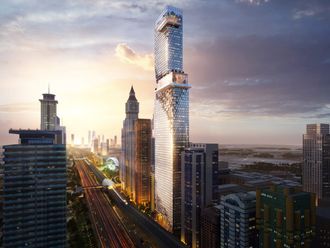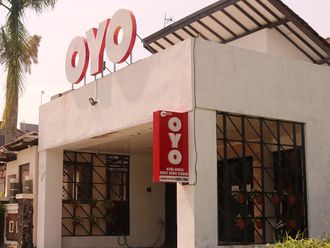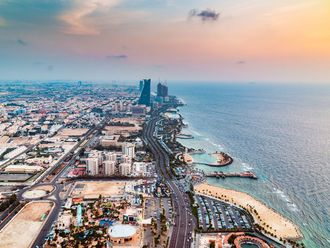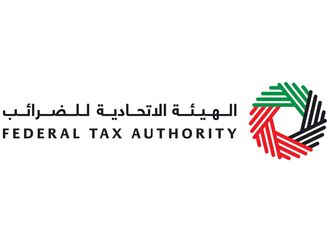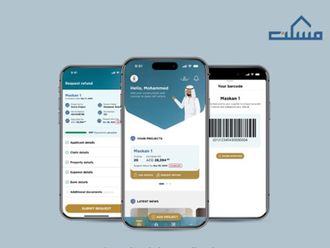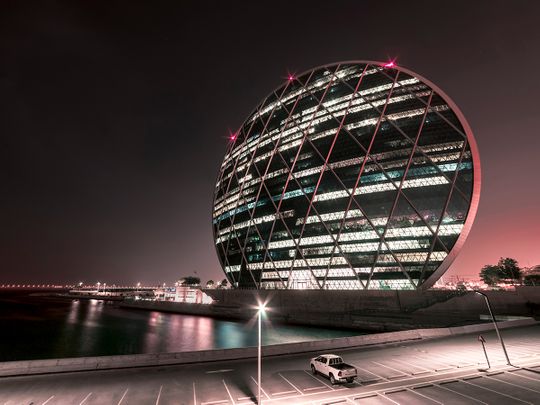
Dubai: The Abu Dhabi master-developer Aldar has put together a clear strategy map to be a Net Zero company by 2050 through a three-stage process. Aldar’s plan explains how it will achieve Net Zero in its direct emissions and on the embodied carbon at all its developments, as well as emissions associated with its supply chain and tenants.
The developer will also work with suppliers to decarbonise materials and operational emissions, and with commercial tenants and homeowner associations to drive sustainable asset operation.
Read more
- Aldar, Mubadala acquire Al Maryah Tower in Dh450m transaction
- Abu Dhabi’s Aldar launches Sustainable City on Yas Island
- Abu Dhabi's Aldar plans upscale residential community in Ras Al Khaimah with 2,000 homes
- Aldar becomes first real estate entity to join Clean Energy Business Council
- Aldar, Nobu in deal to bring luxury hotel, premium residences to Abu Dhabi's Saadiyat Island
Aldar intends to work with utilities providers to source low-carbon energy as the ‘grid decarbonises in line with the UAE Net Zero by 2050 Strategic Initiative’. There will also be close working arrangements with government entities to develop necessary regulations and ‘foster fair competition for construction partners on decarbonisation pathways’.
“Our Net Zero Plan will drive deep and rapid change across all our lines of business and throughout our supply chain. It will transform our approach to design, supply chain management, construction, operations, and asset management,” said Talal Al Dhiyebi, Group CEO of Aldar Properties.
What’s the plan
The target is to be a Net Zero carbon business across its Scope 1[1], Scope 2, and Scope 3 greenhouse gas emissions by 2050. This would be in line with the goals of the Paris Agreement and the UAE’s own Net Zero by 2050 Strategic Initiative.
There are also ‘science-aligned’ interim targets by 2030, which will see Aldar achieve Net Zero in its Scope 1 and Scope 2 GHG emissions and deliver a 45 per cent reduction in the intensity of its Scope 3 GHG emissions relative to the company’s 2021 baseline.
“Our plan is comprehensive, ambitious, and based on science – matching leading global real estate industry benchmarks and setting a new standard for the region in its depth and detail,” the CEO added.
As a developer and asset manager ‘means Aldar is in a unique position to transform assets across their entire lifecycle, which is why it has taken a whole building approach and incorporated Scope 3 tenant-controlled emissions into its commitment’, the company said in the statement.
Eight areas of decabonisation
The company has identified eight decarbonisation focus areas that span the lifecycle of its assets.
Low carbon design
Aldar will create a ‘Sustainable Design Standard’ to embed low carbon active and passive design options, maximising energy efficiency, building performance, and asset climate resilience.
Low carbon supply chain
Aldar will incentivise its supply chain to innovate around low carbon products, materials, and manufacturing processes.
Green construction
The developer will take a whole lifecycle approach to assets that prioritises low carbon site practices and construction material procurement.
Clean energy
Aldar will prioritise the use of clean energy through grid decarbonisation and procuring clean energy through market-based mechanisms or instruments.
Resource efficiency and management
Aldar will upgrade its systems to reduce leakage and improve asset efficiency.
Tenant initiatives
There will be a programme of tenant engagement regarding all leased and managed assets, offering guidance and incentives for more sustainable behaviours.
Circular economy
Aldar will look to enhance waste management during the design, build, and use phases, prioritising diversion from landfill, increasing greywater recycling and supporting the local waste sector.
Sustainable acquisitions
All new investments and acquisitions will be guided by criteria that formally integrate sustainability considerations into the end-to-end investment decision making process.
Tracking progress
Aldar has set near- and long-term GHG emission reduction targets, which align with the latest guidance on climate science. There will also independent validation of its targets once the Science Based Targets Initiative (SBTi) publishes its guidance for the buildings sector in late 2023. (At that point, Aldar will review its Net Zero targets to ensure they meet the criteria, particularly with regards to Scope 3 GHG emissions.)
• Scope 1 emissions include direct emissions from Aldar’s operations such as on-site fuel combustion and fugitive refrigerant gases.
• Scope 2 emissions include indirect emissions from purchased energy, cooling and chilled water.
• Scope 3 emissions include all other emissions associated with Aldar’s supply chain including procurement, construction and tenant emissions



